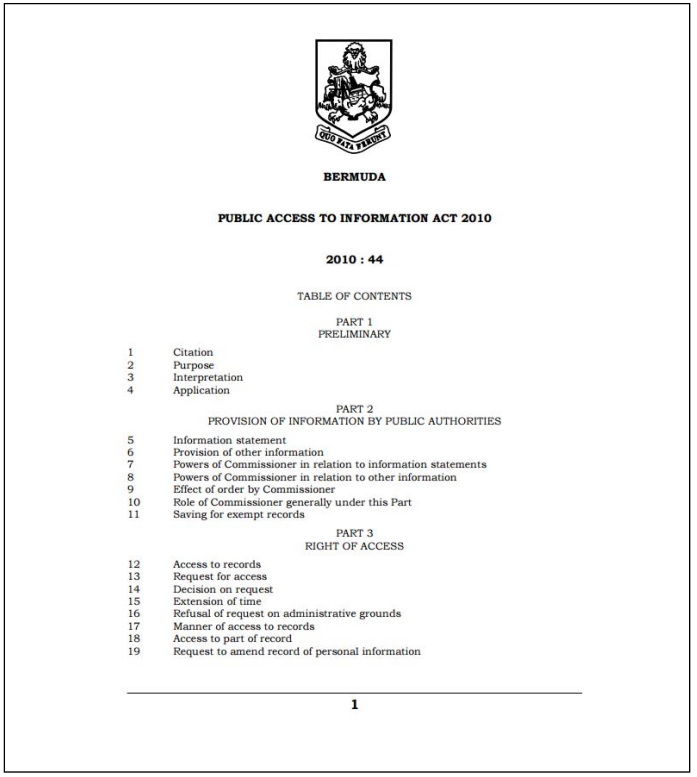23
Apr
2015

Bermuda Law Blog
23
Apr
2015
The Question of Temporary Stewardship of the Corporation of Hamilton
09
Apr
2015
Public Access To Information (PATI) Act and Regulations Now In Force

 In Canada, the Access to Information Act provides the public the right of access to information under the control of a federal government institution. In the USA, the Freedom of Information Act allows for the disclosure of documents controlled by the United States government to the public. In the UK, the Freedom of Information Act gives the public the right to obtain access to information held by public authorities. In the Cayman Islands, these rights fall under the Freedom of Information Law. In Jamaica, the relevant legislation is the Access to Information Act. In Trinidad and Tobago, it’s the Freedom of Information Act.
In Canada, the Access to Information Act provides the public the right of access to information under the control of a federal government institution. In the USA, the Freedom of Information Act allows for the disclosure of documents controlled by the United States government to the public. In the UK, the Freedom of Information Act gives the public the right to obtain access to information held by public authorities. In the Cayman Islands, these rights fall under the Freedom of Information Law. In Jamaica, the relevant legislation is the Access to Information Act. In Trinidad and Tobago, it’s the Freedom of Information Act.
08
Jan
2015
Another Step in the Right Direction: Bermuda Solvency II Equivalence
03
Dec
2014
Trustee (Special Provisions) Amendment Act 2014

02
Dec
2014
Can a Registered Office Resign?

02
Dec
2014
